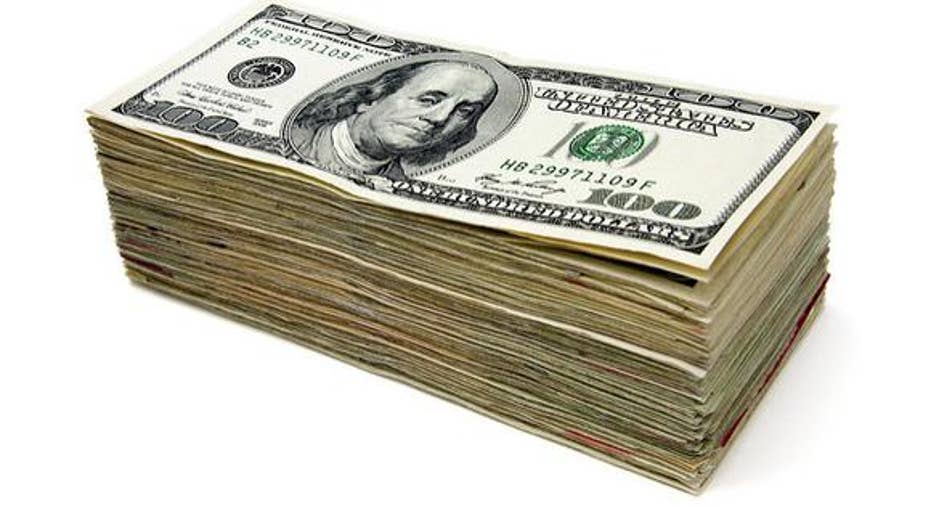How to Cash out a 401(k) When Terminated

Image source: Andrew Magill
If you get terminated from your job, you have the ability to cash out the money in your 401(k) even if you haven't reached 59-1/2 years of age. This includes any money you've contributed and any vested contributions from your employer -- plus any investment profits your account has generated. However, you may face a 10% early withdrawal penalty from the IRS for cashing out early, so this might not be the best option. Here's what you need to know in order to make an informed decision about your 401(k) after you're no longer with your employer.
How to cash out and the implications of doing soThe procedure for cashing out is usually rather simple. All you need to do is contact your plan's administrator and complete the necessary distribution paperwork. However, there are a few things you need to keep in mind, especially regarding the tax implications of cashing out.
Unless your 401(k) is of the Roth variety, all of the money you withdraw will be treated as taxable income, no matter how old you are or the reason for the withdrawal. So, even if you are older than 59-1/2, it's important to consider how cashing out will affect your tax status for the year. If you have a large 401(k) balance, cashing out could easily catapult you into a higher tax bracket. Your plan provider will be required to withhold 20% of the amount you cash out for taxes (although you may owe more), and will also file a form 1099-R to document the distribution.
In addition to owing income taxes, you'll also be required to pay to an additional 10% early withdrawal penalty unless you're over 59-1/2 years old or meet one of the IRS's exceptions, which I'll discuss below. Between taxes and the penalty, your cash-out amount could be much less than the value of your 401(k). Plus, consider the damage you could do to your retirement security by not letting that money grow and compound for your future.
Exceptions to the penaltyThere are a few exceptions to the early withdrawal penalty, and here is a list of some of the more common ones. Keep in mind that you'll still have to pay income taxes on your cash-out, even if you qualify for one of these exceptions.
- If you're over 55 years old at the time you stop working for the company, even if you quit, you can cash out penalty-free. This is known as the "separation from service" exception.
- If you become totally or permanently disabled, you can cash out at any time.
- You can avoid the penalty by cashing out in a series of "substantially equal payments" over the rest of your expected lifetime.
- If the withdrawal is needed to pay medical expenses that exceed 10% of your adjusted gross income.
- If you are a qualified military reservist called to active duty.
Alternatives to cashing outCashing out is certainly an option, but it's not your only one. In addition to cashing out, there are three other possibilities:
- Leave your 401(k) alone:Depending on your 401(k) plan's rules and the size of your account, you might be allowed to leave your money in your former employer's plan. Although you can no longer contribute to the account, you can continue to let your investments grow over time.
- Roll it into your new employer's plan:If you prefer to keep all of your retirement savings in one place, or if your new employer's 401(k) plan has more attractive investment options or lower fees, you should look into combining your old account with your new one. If you call your new plan's administrator, they should be able to walk you through the process.
- Roll it into an IRA:Finally, you have the ability to roll your old 401(k) into an IRA. This has advantages -- most notably, in an IRA you are free to invest in virtually any stocks, bonds, or funds you want. You aren't limited to a small selection of 401(k) funds. If you want more control over your retirement investments, or simply don't have a new 401(k) plan to roll your account into, this could be a smart option for you.
The Foolish bottom lineAlthough you can cash out a 401(k) when you get terminated, cashing out your entire account is rarely, if ever, a smart financial move. Unless you absolutely need the money, you should seriously consider keeping your 401(k) assets invested for as long as possible.
This article is part of The Motley Fool's Knowledge Center, which was created based on the collected wisdom of a fantastic community of investors. We'd love to hear your questions, thoughts, and opinions on the Knowledge Center in general or this page in particular. Your input will help us help the world invest, better! Email us atknowledgecenter@fool.com. Thanks -- and Fool on!
The article How to Cash out a 401(k) When Terminated originally appeared on Fool.com.
Try any of our Foolish newsletter services free for 30 days. We Fools may not all hold the same opinions, but we all believe that considering a diverse range of insights makes us better investors. The Motley Fool has a disclosure policy.
Copyright 1995 - 2016 The Motley Fool, LLC. All rights reserved. The Motley Fool has a disclosure policy.



















